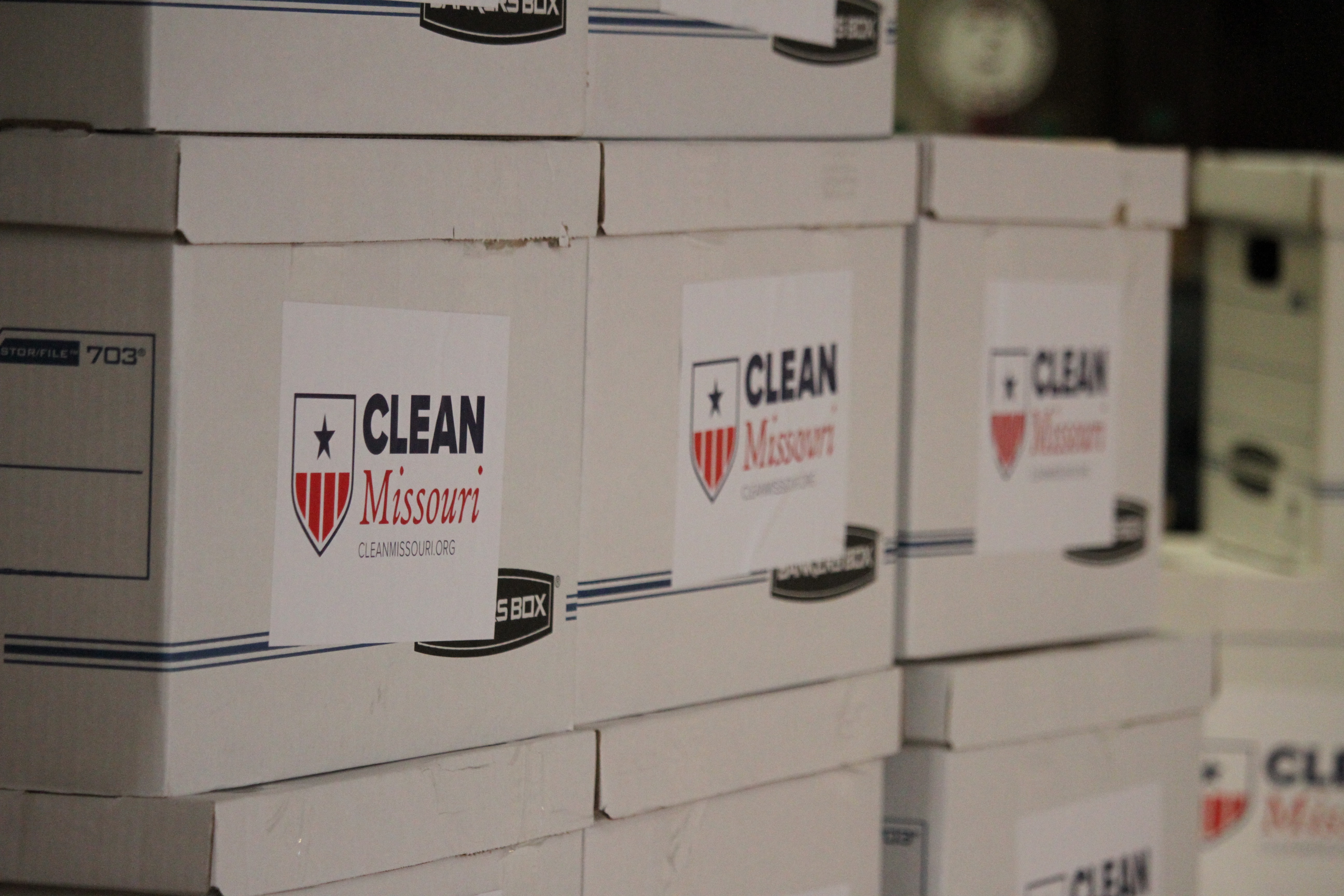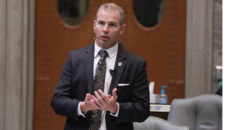JEFFERSON CITY, Mo. – With the deadline to turn in signatures for initiative petitions in the Show-Me State now behind us, a number of proposals are primed to appear before Missouri voters, provided their signatures are verified.
More than 300 initiative petitions were filed this year, but just six petitions crossed the finish line at the Secretary of State’s office this past weekend, four of which deal with the subject of medical marijuana.
Here’s a breakdown of the six:
MINIMUM WAGE
Teaming up with the newly launched Missouri Business for a Fair Minimum Wage, Raise Up Missouri is looking to raise the state’s minimum wage in an effort to equalize wages with the costs of inflation over the years. The group turned in 120,000 signatures last week, with their petition calling for a gradual increase that eventually caps at $12 in 2023.
- increase the state minimum wage to $8.60 per hour with 85 cents per hour increase each year until 2023, when the state minimum wage would be $12.00 per hour;
- exempt government employers from the above increase; and
- increase the penalty for paying employees less than the minimum wage
POTENTIAL COST: State and local governments estimate no direct costs or savings from the proposal, but operating costs could increase by an unknown annual amount that could be significant. State and local government tax revenue could change by an unknown annual amount ranging from a $2.9 million decrease to a $214 million increase depending on business decisions.
CLEAN MISSOURI
Constitutional Amendment: 2018-048, relating to general assembly – Clean Missouri
Perhaps the most controversial of the initiative petitions, at least among lawmakers, Clean Missouri is the attempt at bringing changes to ethics and accountability for elected officials. The proposal calls for a lobbyist gift ban, limits for campaign contributions, a cooling off period before becoming a lobbyist, and changes to how redistricting is done. It’s been heavily supported by Republican Sen. Rob Schaaf, who has stood as a staunch opponent against so-called “dark money” in politics.
- change process and criteria for redrawing state legislative districts during reapportionment;
- change limits on campaign contributions that candidates for state legislature can accept from individuals or entities;
- establish a limit on gifts that state legislators, and their employees, can accept from paid lobbyists;
- prohibit state legislators, and their employees, from serving as paid lobbyists for a period of time;
- prohibit political fundraising by candidates for or members of the state legislature on State property; and
- require legislative records and proceedings to be open to the public
POTENTIAL COST: State governmental entities estimate annual operating costs may increase by $189,000. Local governmental entities expect no fiscal impact.
MEDICAL MARIJUANA
The final four initiative petitions deal with the subject of medical marijuana. Nearly all of the petitions deal with the allowing of patients to access medical marijuana, but the difference lies in how it would be regulated and taxed.
Constitutional Amendment: 2018-051, relating to medical marijuana – New Approach Missouri
- allow the use of marijuana for medical purposes, and create regulations and licensing/certification procedures for marijuana and marijuana facilities;
- impose a 4 percent tax on the retail sale of marijuana; and
- use funds from these taxes for health and care services for military veterans by the Missouri Veterans Commission and to administer the program to license/certify and regulate marijuana and marijuana facilities
POTENTIAL COST: This proposal is estimated to generate annual taxes and fees of $18 million for state operating costs and veterans programs, and $6 million for local governments. Annual state operating costs are estimated to be $7 million.
Constitutional Amendment: 2018 -041 relating to medical marijuana – Find the Cure
- allow the use of marijuana for medical purposes, and create regulations and licensing procedures for marijuana and marijuana facilities;
- impose a 15 percent tax on the retail sale of marijuana, and a tax on the wholesale sale of marijuana flowers and leaves per dry-weight ounce to licensed facilities; and
- use funds from these taxes to establish and fund a state research institute to conduct research with the purpose of developing cures and treatments for cancer and other incurable diseases or medical conditions
POTENTIAL COST: This proposal is estimated to generate annual taxes and fees of $66 million. State governmental entities estimate initial implementation costs of $186,000 and increased annual operating costs of $500,000.
Constitutional Amendment: 2018-223, relating to personal and medical marijuana use – Charles Jones
- remove state prohibitions on the possession, growth and sale of cannabis (marijuana) for personal or medical use by anyone 18 years and older;
- remove state prohibitions on marijuana possession by anyone under 18;
- remove state prohibitions on marijuana use by anyone under 18 if the minor has parental or legal guardian consent or a physician’s recommendation;
- release people incarcerated for nonviolent marijuana-related crimes unless the person has additional time to serve for another dissimilar offense; and
- prohibit using state funds to assist in federal marijuana offense enforcement
POTENTIAL COST: This proposal is estimated to result in annual state savings of $11 million. Additional state operating costs resulting from this proposal are estimated at $700,000 annually. Local law enforcement costs could increase.
Statutory Amendment: 2018-271, relating to medical marijuana – Missourians for Patient Care
- remove state prohibitions on personal use and possession of medical cannabis (marijuana) with a written certification by a physician who treats a patient diagnosed with a qualifying medical condition;
- remove state prohibitions on growth, possession, production, and sale of medical marijuana by licensed and regulated facilities, and a facility’s licensed owners and employees;
- impose a 2% tax on the retail sale of medical marijuana; and
- use funds from this tax for veterans’ services, drug treatment, early childhood education, and for public safety in cities with a medical marijuana facility
POTENTIAL COST: State government entities estimate initial and one-time costs of $2.6 million, annual costs of $10 million, and annual revenues of at least $10 million. Local government entities estimate no annual costs and are expected to have at least $152,000 in annual revenues.
RIGHT-TO-WORK
Meanwhile, the only initiative petition to have been verified and on the ballot this year is the referendum concerning Missouri’s right-to-work law. However, it still remains to be seen whether that item will appear on the November ballot or the August primary, as legislation is still pending in the Missouri legislature.










